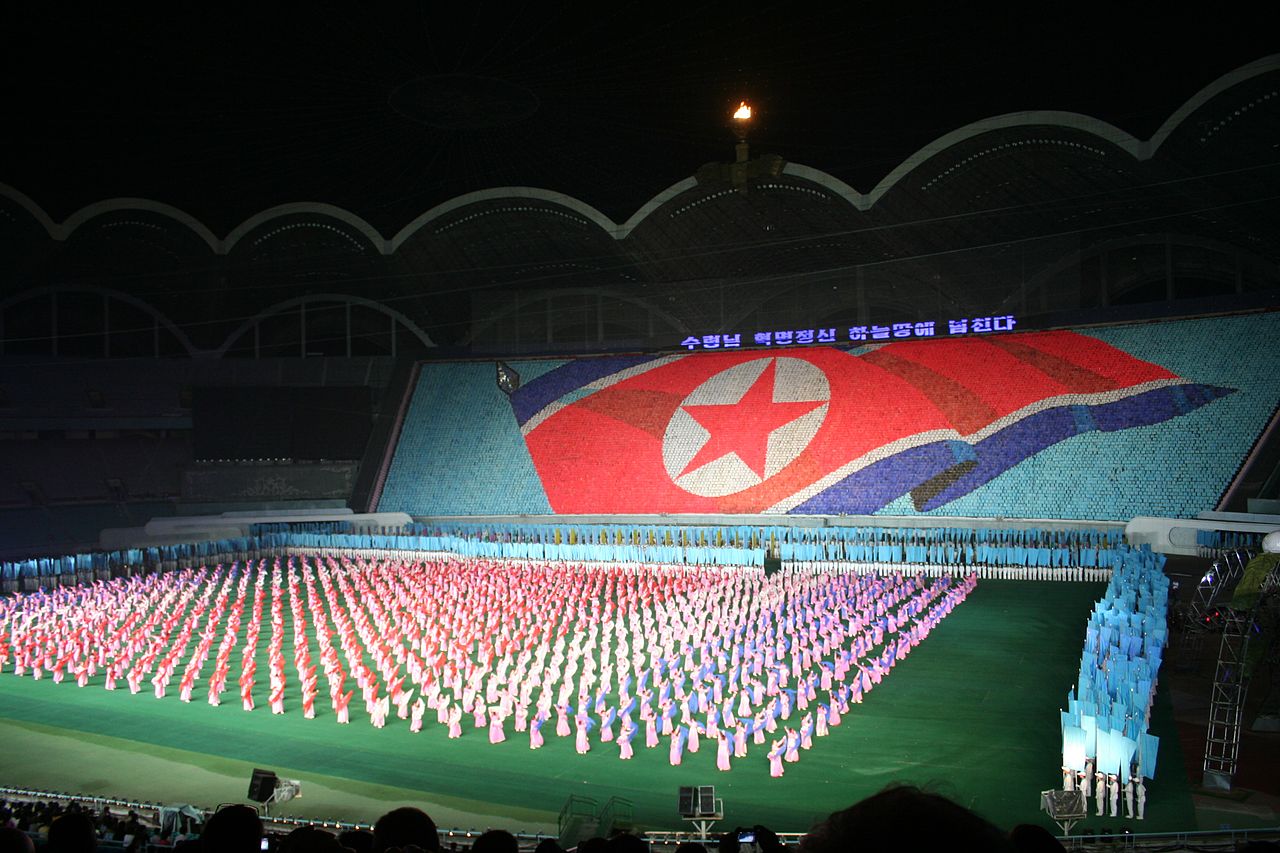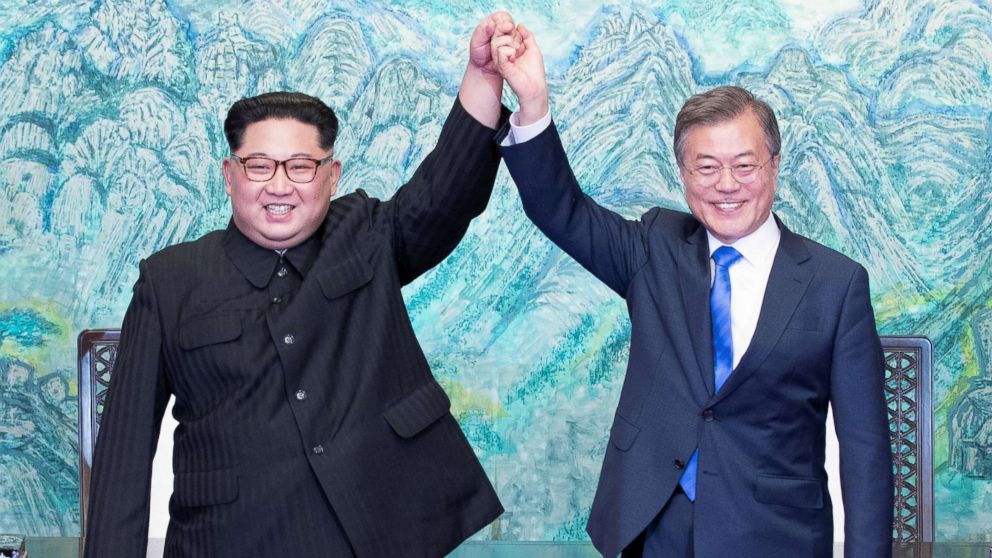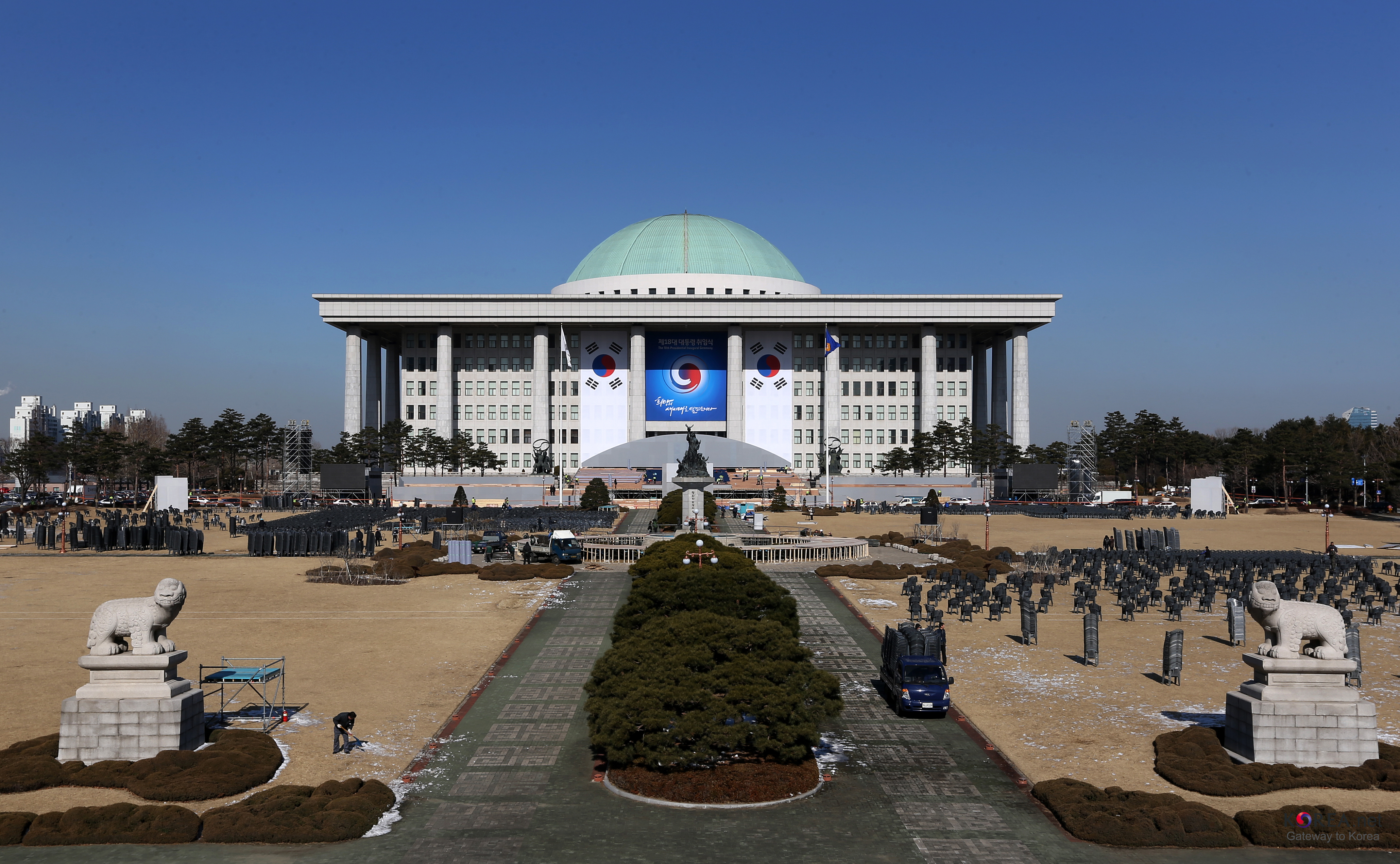Since the end of the Cold War, the North Korean nuclear program has dominated not only regional, but also global security discourse. Much of the world’s North Korea policy has focused on convincing the Kim dynasty to either halt or roll back its nuclear program, with little success so far. With tensions ramping up in northeast Asia, one thing is fairly certain: North Korea will remain a nuclear power.
To understand North Korea’s seemingly stubborn, incomprehensible diplomacy and nuclear policies, it is imperative to look at the state’s initial motivation for building a nuclear arsenal. When the Cold War ended in 1989, North Korea lost the economic and security guarantor it had with the Soviet Union, which had sustained and propped up the state for over four decades.
To its southern border and across the East Sea, it faced South Korea and Japan: both stronger economies allied with the United States, the winner of the Cold War and the sole remaining superpower. More importantly, the United States had deployed its nuclear arsenal in South Korea until 1991. Put simply, in North Korea’s view, it had no choice but to pursue nuclear weapons for survival. There was never going to be any competition in conventional arms between North Korea and the United States.
States develop nuclear weapons for many reasons, but the chief among them is the perceived utility of nuclear weapons in relation to the external security situation. A prime example would be Pakistan, who similarly felt that a nuclear weapon was the only way for state survival against a hostile neighbor that was once part of the same country, India.
In North Korea’s case, the utility of its weapons has increased if anything. The biggest determinant of North Korea’s nuclear future is Pyongyang’s perception of both external security threats and the relative utility of its nuclear weapons. While sanctions and strongly worded statements have acted as stopgaps to temporarily halt or retard North Korean nuclear development in the past, they ultimately have failed to prevent North Korea’s eventual acquisition of nuclear weapons. Furthermore, North Korea has shown its willingness to weather out the sanctions, and it would be naïve to assume the regime would succumb to such international pressure all of a sudden.
Only four states have acquired and given up nuclear weapons in history: Belarus, Kazakhstan, South Africa and Ukraine. Three of these states (Belarus, Kazakhstan and Ukraine) were “nuclear from birth” as Soviet weapons were deployed in their territories. This leaves just South Africa as the only state to give up native nuclear weapons.
Can a similar process take place in North Korea? History tells us it is unlikely. When South Africa dismantled its six nuclear weapons in 1989, the country was undergoing radical changes in both its external security situation and domestic politics. Externally, the Cold War ended, and the threat of a Communist revolution dissipated. Internally, the exiting apartheid regime deemed it unwise to transfer its nuclear arsenal to the new regime led by the African National Congress.
In other words, South Africa experienced domestic and international watershed moments that favored nuclear dismantling. At the moment, it is difficult to imagine a realistic scenario in which North Korea will experience similar events both internally and externally that significantly decrease the utility of its nuclear weapons. The only parallel between South Africa in 1989 and North Korea today is a US position in favor of denuclearization.
Furthermore, North Korea historically has been incredibly hostile to diplomatic engagements. The 1994 Agreement Framework between the United States and North Korea failed after Pyongyang cheated by operating a uranium enrichment program. When confronted, North Korea shifted the blame on to the United States and withdrew from the Nuclear Non-Proliferation Treaty in 2003.
In 2007, six-party talks involving China, Russia, Japan, the United States and both Koreas resulted in an agreement. It required North Korea to submit a list of its nuclear weapons and disable its nuclear facility in exchange for aid and discussions of diplomatic normalization with the United States and Japan. This agreement also failed when North Korea tested both nuclear weapons and missiles in 2009. If anything, diplomatic history shows there is no convincing North Korea to give up its ultimate goal, being a formidable nuclear power.
This is not to say North Korea’s denuclearization is completely impossible, but it would require regional and international players paying unacceptable costs. Whether the chosen method for denuclearization is a military action or the implosion and collapse of the Kim regime, the potential cost of life and resources are big barriers.
Will South Korea risk losing Seoul to North Korean artillery, or will Japan risk losing Tokyo to a nuclear strike for a chance at a denuclearized North Korea? Will the United States relinquish all its interests in the region to convince Pyongyang of its security and survival? Such questions show that while denuclearization of North Korea may not be out of the realm of possibility, it is most certainly out of the realm of sensibility.
Everything about North Korea and its nuclear program points to the conclusion that the eccentric, rogue regime is here to stay as a nuclear power. Even diplomatic engagements once hailed as successful have failed at stopping North Korea’s nuclear ambitions. With the regime’s survival so closely tied to its nuclear weapons, and decades of deception and mistrust, it is unlikely there can be a negotiated settlement similar to the Joint Comprehensive Plan of Action, commonly known as the Iran nuclear deal.
Whether it is politically acceptable or not, Pyongyang’s nuclear capability is a reality, not a negotiable condition. Policymakers must accept North Korea’s status as a member of the nuclear club; the acceptance of this uncomfortable fact is the foundation upon which future North Korea policies must be built. The fact is that efforts to prevent North Korea from acquiring nuclear weapons failed. It is time to move on from the past and change the aims of North Korea policies from denuclearization to prevention of delivery mechanism development, and further horizontal proliferation. Failure or reluctance to accept this “new” strategic reality will continue to halt diplomatic progress. Further international pressure and condemnation founded on outdated goals and assumptions eventually will result in the unspeakable: the 64-year-old armistice agreement being thrown out the window, resumption of war, and utter destruction of the peninsula.
- Defining Denuclearization - April 24, 2018
- Hold the Horses of Optimism: Donald Trump-Kim Jong Un Summit - March 15, 2018
- China-South Korea THAAD Rapprochement: Winners and Losers - February 8, 2018






